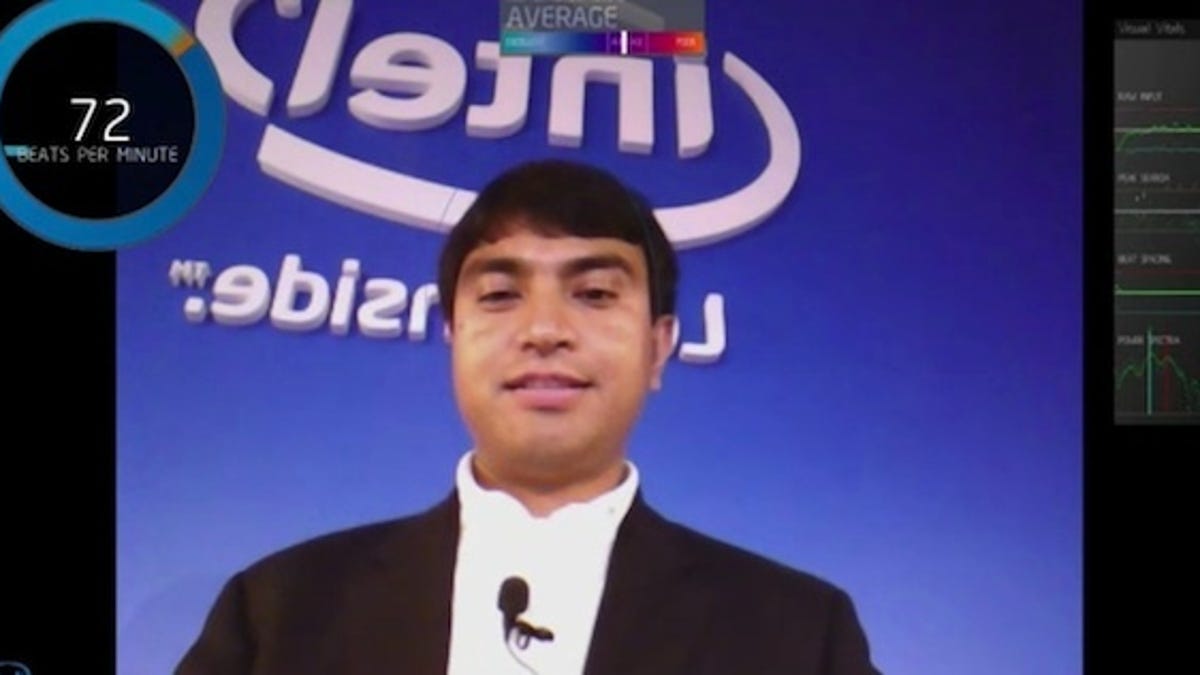Intel tablet keeps tabs on your heart rate
Intel's perceptual computing isn't limited to PCs. The chipmaker demoed a tablet packing algorithms that keeps tabs on your heart.

Intel's perceptual computing isn't just fun and games.
In the past year or so, Intel's demoes of perceptual computing have focused on interacting with the computer in the 3D space in front of the device. It's not unlike the motion-sensing Kinect gaming technology from Microsoft, which allows interaction via gestures.
Well, that same sensing technology does more than just games. Using "sophisticated computer vision algorithms" Intel showed a tablet monitoring a person's heart rate (see image at top).
"When oxygenated blood comes to my face, we can't see it with our bare eyes but computer vision algorithms can pick up the small changes in the color [of the face]" and give you an indication of your health, Achin Bhowmik, director of perceptual computing at Intel, said in the demonstration.
Earlier this week, the chipmaker said its investment arm will allocate $100 million to the Intel Capital Experiences and Perceptual Computing Fund over the next two to three years for startups and companies developing software and apps that take computing beyond the touch screen and mouse.
Perceptual computing focuses on gesture, voice, emotion sensing, biometrics, and image recognition.
Note that apps -- unrelated to Intel's efforts -- are beginning to surface for the iPhone too. One detects an irregular heartbeat by snapping a picture of your fingertip.

